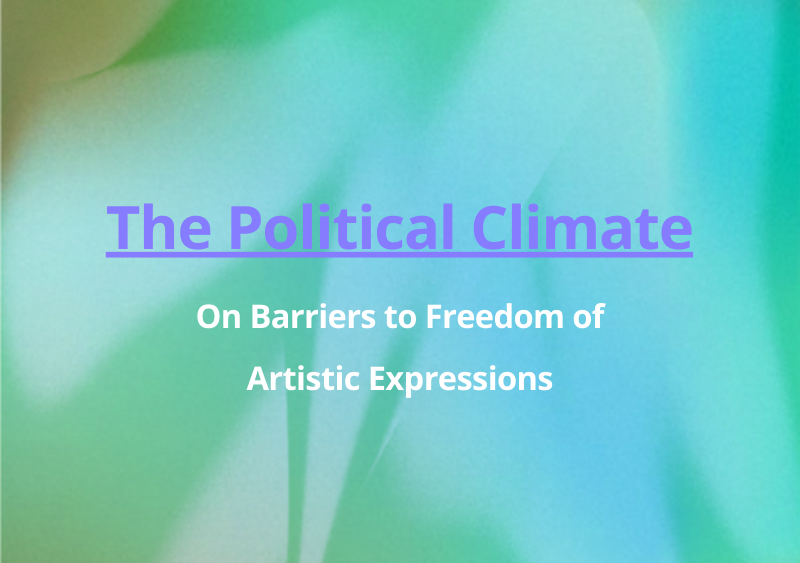Thanks to Andreas Wiesand‘s efforts, we are now able to publish the second report “On Barriers to Freedom of Artistic Expression – The Political Climate” as a further exploration of the main legal and policy issues dealt with in our cultural policy research campaign “Silencing Dissent? On Barriers to Freedom of Artistic Expressions“. This sub-theme will form the basis for an upcoming webtalk – keep posted on the timing details.
The author’s note to the reports: Our investigations focus on main potential barriers to Freedom of Artistic Expressions (FoAE) as well as on actions, frameworks, strategies and instruments that are relevant in this context. First, we try to learn more about the development of the „political climate“ in Europe and its influences on FoAE, followed by a discussion of more or less open censorship and, finally, by a look on social and community pressures that could impair artists and their work. Because of the Compendium context, this will be done mainly in a European perspective via an assessment of existing studies, an examination of cases and evidence found in the media.
The following arguments and examples were selected in order to clarify specific viewpoints that merit further debates. In other words: During the preparation of the texts, I did not focus on spectacular new revelations. Instead, I wanted to highlight a few recent cases and positions that could help to ask the right questions and bring us closer to appropriate answers. In the course of this tour d‘horizon, some personal experiences are not avoided. Of course: All arguments and conclusions are those of the author(s) and do not bind the Compendium Association and its partners in any way. I appreciate alternative views and additional facts that could qualify, or add to, what is presented in the next three articles. In fact, the Compendium team hopes to complement the following results in the course of 2023 with additional results, including via web exchanges, surveys and other participative instruments.
If you have not had a chance to read the first report on “Definitions, Instruments, and Stakeholders“, you should do so.

